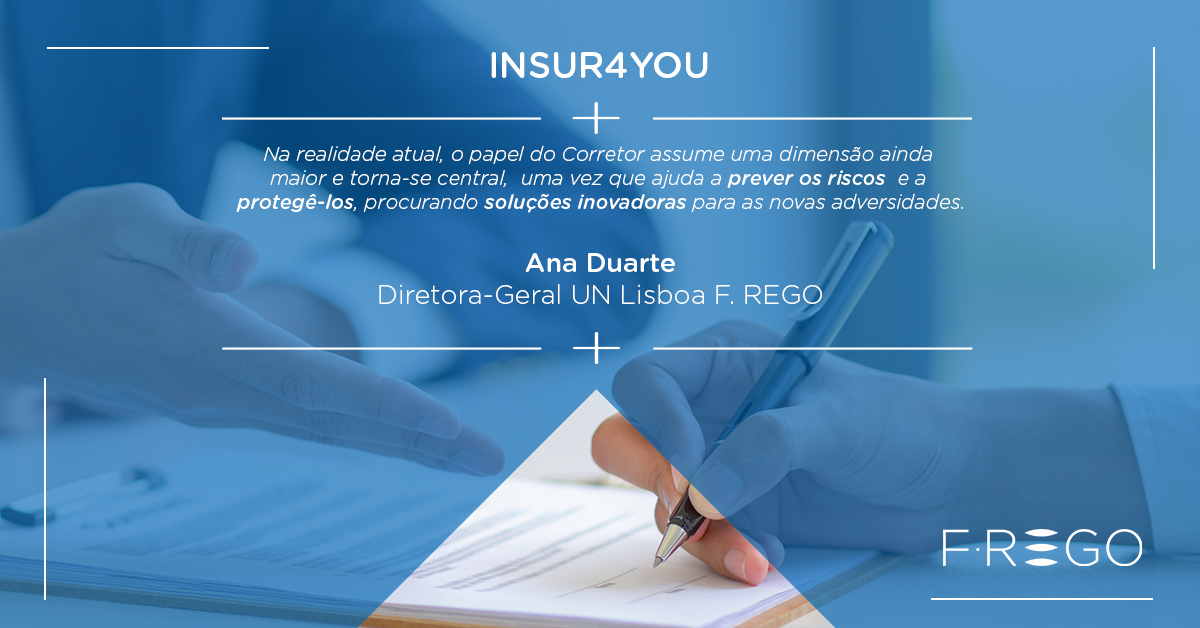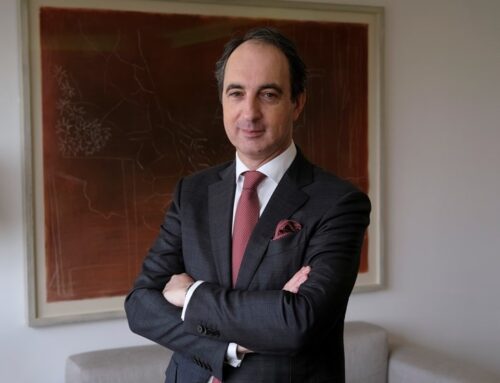Ana Duarte, UN Lisbon Director General at F. REGO, explains, under the heading Insur4You, the Relevance of the Insurance Broker in the current Business Reality.
Seeking to answer the question clearly, she divided it into two parts, addressing, first, what is the relevance of the Insurance Broker and, secondly, what is this importance in the current business reality.
An insurance broker’s mission is to serve as a consultant to a firm in the field of insurance. In order to accomplish this purpose, it must identify and assess the organization’s people, property, environmental (and other) risks, as well as provide solutions for their transfer to an insurance firm in exchange for a premium.
In diagnosing existing risks and in the proposal to present for their transfer, it is important to be aware, on the one hand, that not all risks are transferable and, on the other, that, within those that are, we can choose to limit your transfer.
In addition to this consultant function, the Broker also has a “translator” function of the language used by insurance companies, as this is sometimes not intelligible to companies. It is up to the Broker to use clear and accessible language in explaining to clients how an insurance policy works, namely the scope of coverage and the capital that we are insuring.
In short, I understand that the relevance of the broker’s role lies in the specialized consultancy that it is able to provide to companies, carrying out a correct assessment of the risks of its activity and an adequate transfer of these risks, in order to protect the resources and activity of the organization.
The second part of the question refers to the relevance of the Insurance Broker in the current business reality, and this brings together concepts currently in vogue, such as the “VUCA world” and the “Bani world”.
The so-called “VUCA world” or “VICA” in Portuguese (Volatility, Uncertainty, Complexity and Ambiguity) evolved into a “Bani” world (Brittle, Anxious, Nonlinear and Incomprehensible or Fragile, Anxious, Nonlinear and Incomprehensible) and this evolution occurred also in the business world.
Digital advances, boosted by the pandemic, compromise the meaning that VUCA gave to the world scenario. It is enough to analyze the different areas of the business to identify profound changes in the way things are done.
The BANI Concept marks the transition from volatility to agility; from uncertainty to anxiety; from complexity to non-linearity and from ambiguity to misunderstanding.
The speed with which scenarios have changed makes people afraid of losing their jobs overnight; companies work with a weak planning and both are aware that everything can change at any time.
This year, anxiety was the dominant feeling for many people. After all, the uncertainties of the VUCA world have become increasingly overwhelming, creating a scenario of fear, insecurity and impotence in the face of changes. This anxiety easily turns into fear and influences decision-making processes, blocking initiatives and impacting the search for new solutions.
Nonlinearity is especially marked by the disconnect between cause and effect. The Coronavirus crisis and climate change are two examples of this system.
As an article published by MIT Sloan points out, we are in a world where small decisions can bring big results, while a huge effort, placed on an important variable, can generate total lack of response.
We are at a moment of profound misunderstanding that derives mainly from the excess of information. The information is so extensive and is processed so often and quickly that many simply do not know how to act.
But this “BANI” world cannot be dissociated from risk-based management. Instead, in an environment of uncertainty, we must be open to new possibilities, be moved by the desire and courage to travel on roads never taken. We have to try to reinvent and understand this world we currently live in, facing the different challenges and risks.
In this path, the role of the Broker takes on a greater dimension and becomes central, as it helps to foresee risks and protect them, looking for innovative solutions to new adversities. He works in counseling for decision-making, in the face of uncertainties.
Ana Duarte






